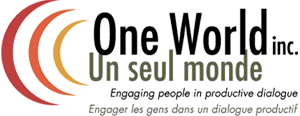How to Ensure Successful Results on Your Next Project
Robust evaluation is an integral part of good business. Some of the core roles of effective evaluation tools include some or all of the following:
- To assess or redefine strategic goals
- To review budget efficiencies
- To inform the organization on project effectiveness
Planning, conducting and integrating evaluations into organizational processes can be challenging and implemented in multiple ways. Let’s explore how we incorporate varied evaluation practices into a particular project, the reason behind that decision and when to execute the evaluation.
To Inform (Lessons Learned)
An evaluation is particularly useful for providing information, not just when closing out a project, but to inform future efforts. Evaluation reports can provide helpful suggestions, filling in the gaps or missteps from the past. Lessons learned are critical pieces of the puzzle for future success, providing specifics on what worked and why and how to achieve the results you’re looking for more effectively. Feedback obtained from an evaluation is a major component of knowledge sharing and an essential part of communicating new strategies and plans.
To Promote Change
When organizations decide to make change or embark on a new adventure, it’s often helpful to create an evaluation framework to define the intended outcomes. Having an evaluation at the very beginning helps answer core questions like what are intended outcomes and how you plan on measuring results. Some of the measurement strategies may not fit into traditional, numbers dominated tools. Large-scale change often requires people to change fundamental choices. Many of these choices are difficult to measure, like consumption patterns or whom they donate to and why.
Visual mapping is an aspect of evaluation that is useful for getting people to think outside of the box. How will the change affects how members work together or the capacity to respond? A well-designed evaluation framework looks at each of these areas and creates a plan for how to measure and track results.
Pre and Post Event Evaluations
An evaluation conducted before or during an event (Ex-Ante Evaluation) requires you identify not only intended results, but also, how you plan on measuring them and how the information gathered is to be ultimately used. The strategy selected should be relevant to the issue and the organization as the target audience might include a wide range of stakeholders. Use a variety of strategies to gather information – telephone interviews, surveys and focus groups- to ensure nothing is missed due to the questions or method.
Too often an evaluation takes place toward the end of a project, without an evaluation framework to draw from. In this scenario, it takes time to filter through relevant materials and reconstruct or “map out” intended outcomes. The example below illustrates how an Ex Post Evaluation would take place.
Spotlight: Health Canada
Recently Health Canada implemented a communications campaign across the country to raise awareness about the effects of a particular product for children. The effort was designed to reach multiple stakeholders, including parents, physicians, pharmacists and the general public. As part of the initiative, they produced a number of documents and communication materials, posters and fact sheets and distributed them around the country.
OWI’s task was to evaluate the effectiveness of the campaign. But as a post event evaluation without an evaluation framework in place, we had to work backwards to try and identify what specific results they had intended to achieve. After mapping out the target audience, we conducted a wide scale survey, designed scripts and interview templates, held teleconferences, focus groups and conducted key stakeholder interviews with nurses, parents, childcare workers, doctors and pharmacists. We eventually created a formal report. However, it would have been a much more informative and helpful evaluation had we been brought on in the beginning to set the stage for the evaluation before the campaign was underway.
Evaluation is an invaluable tool for learning what works and what doesn’t. When used properly, it can highlight lessons learned to shape behavior and guide future decision-making. Evaluations can also help promote change by helping stakeholders and others more effectively explore intended results and outcomes that may be difficult to measure. Pre-event or post event, evaluations play a critical role in shaping organizational behavior by providing reliable information useful for future planning.
